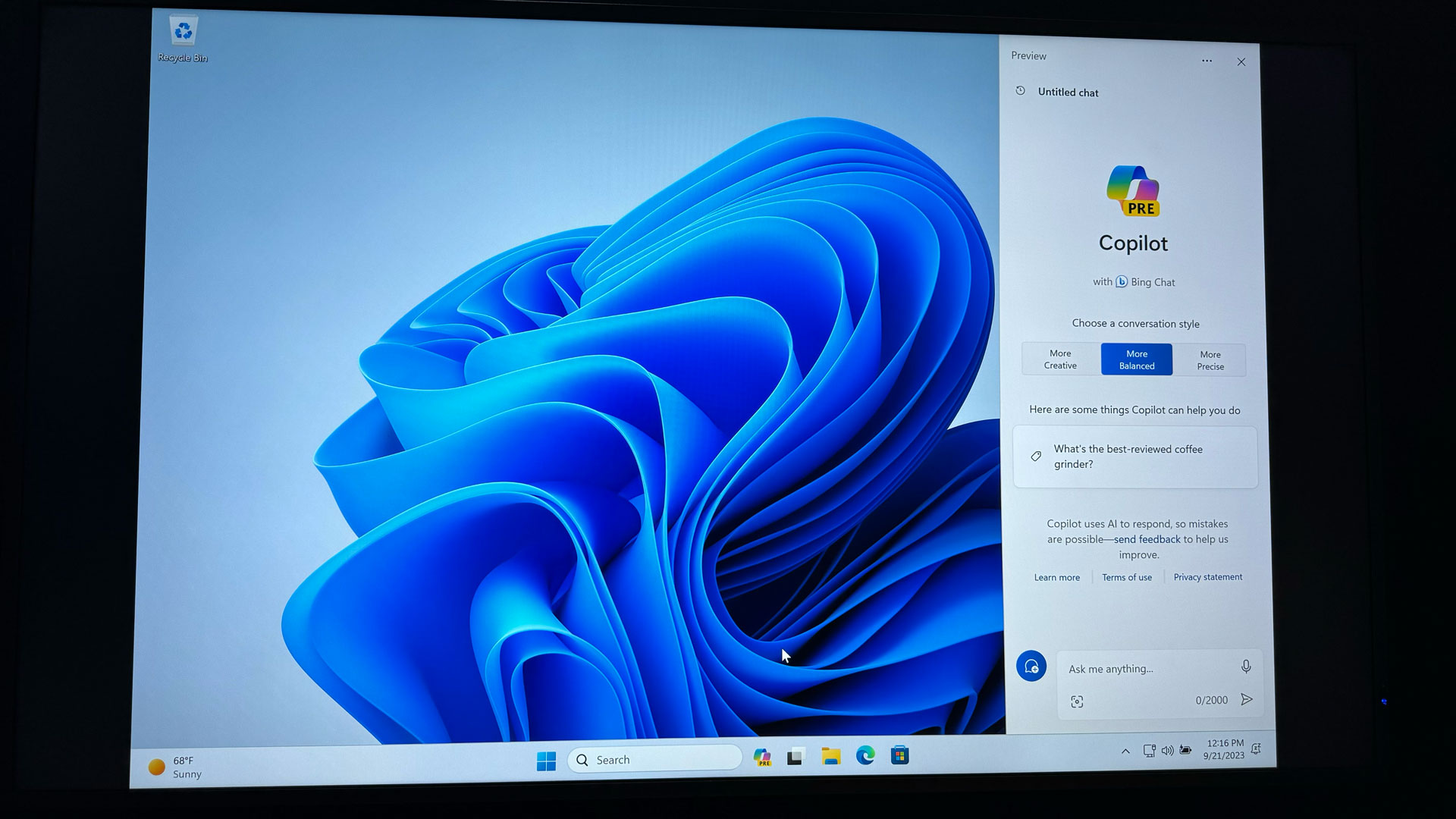Hidden feature in Windows 11 suggests we could get the ability to uninstall AI components – and maybe even Copilot eventually?
If Copilot ends up as a locally installed feature, that is, but even then we wouldn’t bank on it being removable

Sign up for breaking news, reviews, opinion, top tech deals, and more.
You are now subscribed
Your newsletter sign-up was successful
Windows 11 often has incoming changes hidden away behind the scenes of the operating system, and another of these has just been spotted – and it’s a big one pertaining to AI.
Windows Central stumbled upon a tweet by regular leaker PhantomOfEarth on X, who has been digging around in Windows 11 preview build 26016 (in the Canary channel).
Hidden in Canary 26016: a settings page for AI components. Currently incomplete and just shows the contents of the system components page.vivetool /enable /id:47688503 pic.twitter.com/VfAZkaa367December 13, 2023
PhantomOfEarth discovered a Settings page for AI Components which, as mentioned, is hidden, but can be turned on using a Windows configuration tool (ViVeTool).
This lists system components related to AI functionality, although it doesn’t do anything when enabled (unsurprisingly, it’s tucked away in the background for a reason – namely it doesn’t work yet).
The leaker also found strings related to the page, with one of those being: “View and remove AI components that are installed on Windows.”
So, it seems that this panel in Settings (under System) will allow you not only to view any AI-related system components, but also uninstall them if you wish.
Analysis: A necessary choice?
The AI components listed in the screenshot provided by PhantomOfEarth include Windows Security, the Microsoft Store, Phone Link and Xbox Game Bar – suggesting maybe that these will be furnished with AI extras at some point? Or they could just be placeholders, which is probably a more likely story – though we can certainly see the Microsoft Store, for example, getting augmented with AI (that suggests apps you might like based on the usage of your PC, or past downloads).
Sign up for breaking news, reviews, opinion, top tech deals, and more.
The latter brings up a point that may worry some Windows 11 users, namely privacy and exactly what AI might be doing in terms of profiling you, and building up a more in-depth picture of your likes, dislikes and so on, extrapolating from that. We should note at this point that this discussion is entirely theoretical, of course, but the general point is that some folks won’t want AI in their operating system – either for privacy reasons, or because they don’t trust it, perhaps.
It makes sense, then, that Microsoft will cater for those who want to remove AI abilities and provide these uninstallation options. Not that the presence of this Settings page in testing means anything yet – it could be scrapped in preview. Indeed, it isn’t even present in preview builds yet, it’s hidden in the background.
That brings us to another point – it’s very early work on this feature. The likelihood is that a wider swathe of AI functionality – and these options – won’t fully debut until next-gen Windows is released. (That’ll be next year, in theory, although we’re still not sure whether this will be Windows 12 – though whatever the case, big plans are afoot for AI, going by the latest rumors).
An interesting observation Windows Central makes here is that we don’t know how far AI uninstallation capabilities will reach – and whether that might include getting rid of Copilot? Yes, Copilot is in the cloud right now (so not on your PC anyway, or at least its ‘brain’ isn’t, only the interface), but Microsoft seemingly has plans to make the AI local – and if so, it’s possible that it could be made removable.
We doubt it, mind you, seeing as Copilot is such a central aspect of the OS – but at least some components relating to AI should be viable for uninstallation if this new finding is anything to go by.
You might also like...
Darren is a freelancer writing news and features for TechRadar (and occasionally T3) across a broad range of computing topics including CPUs, GPUs, various other hardware, VPNs, antivirus and more. He has written about tech for the best part of three decades, and writes books in his spare time (his debut novel - 'I Know What You Did Last Supper' - was published by Hachette UK in 2013).